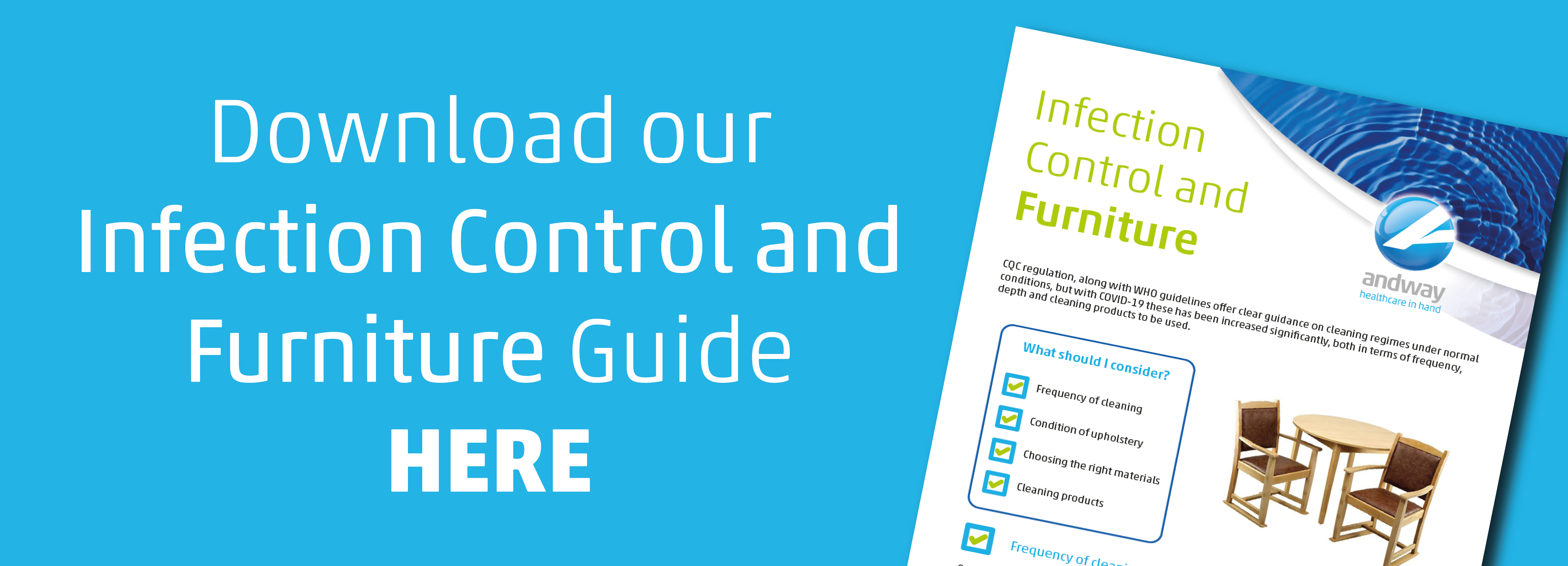
- 2016
- 2017
- 2018
- 2019
- 2020
- 2021
- 2022
- 2023
- 2024
- 2025
News
How To Find Help and Support at Home
As we grow older, we inevitably start thinking about where we are going to live and the care that we may need in the future. With a wide range of options to choose from, this can be a daunting process.
Whether you choose to stay in your own home, or move somewhere else, everybody should have access to the help and support that they need.
Even with the desire of independence, many older people still require assistance around the home. Local councils and charities offer many types of support. We’ve gathered them all together to help you decide what’s best for you.
Home Care
Homecare, sometimes known as domiciliary care offers different levels of supportwithout long-term commitment.This flexible system is very popular and helps over 950,000 people in the UK every year. It involves a paid carer coming to a person’s house as often as is needed, from once a week to more than once a day. They can support people with activities such as:
-
Getting in and out of bed
-
Bathing and washing
-
Preparing meals
-
Cleaning
Homecare is a very popular resource that helps over 950,000 people in the UK every year.
How Do I Receive Home Care?
First you must inform your local authority that you require assistance. After assessing your care needs, they will decide if you are eligible for homecare services or a home carer. If you are accepted for support, the council will provide you with a written care plan.
If you are not successful in your search for homecare, you will be given advice and information on any other options that may be suitable for you. Continue to look around for other care options if you feel you need to.
How Much Does Home CareCost?
Prices vary for individuals depending on their needs. The local council will work out how much you can afford to pay, to ensure that you are left with a reasonable level of income. Some councils place an upper weekly limit on the amount you have to pay, so be sure to contact them to find out more information.
If you are struggling to afford care, there are benefits available. This includes the Attendance Allowance and Personal Independence Payments. These systems can help you meet the cost of homecare and ease your financial worries. More information is available on the NHS website.
Home Help
Home help is slightly different from homecare as it offers more general assistance with domestic tasks. Home help staff are unable to assist with personal care such as dressing or bathing but will help with jobs such as:
-
Cleaning
-
Gardening
-
Washing
-
Laundry
-
Shopping
This is a very flexible service that can be tailored to an individual’s personal needs; it offers a perfect solution for people who only need a small amount of support. No matter what you require, all home helps are experienced and fully trained to ensure the best care possible.
Unfortunately, home help is not provided through local councils. To find out more about this opportunity, get in touch with charities such as AgeUK and The Red Crossto see what help they can offer you.
How Can We Help?
Deciding to stay at home can leave people feeling frightened and unprepared. Here at Andway, we have a range of products that will help you adapt your home into the safest environment possible.
Whether you require help moving, bathing or just general assistance, get in touch and find out how we can help you today.

The 21st of September is World Alzheimer’s Day, concluding a month-long international campaign to raise awareness surrounding the disease. The illness is the most common cause of dementia. Currently, there are 900,000 people living with dementia. By 2025, it has been projected that this statistic will rise to over 1,000,000 people, and 1.6 million by 2040.
Latest research has revealed that changes in the brain which led to Alzheimer’s start between 15 and 20 years before any symptoms present themselves. Current scientific focus is on finding ways to recognise and diagnose these changes as early as possible.
Alzheimer’s Research UK has devised a list of tips for a healthier brain, in order to reduce the risk of developing Alzheimer’s disease:
- Sticking to recommended limits when drinking alcohol
- No smoking
- Keeping high blood pressure under control
- Maintaining a healthy weight
- Ensuring cholesterol is kept at a healthy level
- Having an active lifestyle and eating a balanced diet
Getting Support After a Diagnosis
After receiving a diagnosis of Alzheimer’s Disease, some people may experience feelings of low mood, worry, or embarrassment. A sense of shame and anger may also be felt.
Sometimes the disease is only detected in its later stages. As a result, this can affect how an individual responds upon hearing the news, due to the way that dementia can change someone’s brain, behaviour, and personality.
There are many ways that people can support themselves after a diagnosis. The Alzheimer’s Society has produced a helpful publication full of statistics, helplines, and treatments. The booklet is an excellent place to start if you want to find out more in-depth information.
With the right support, a person with dementia can reduce the likelihood of experiencing negative emotions that surface as the disease progresses. Maintaining social engagements and connections can reduce feelings of isolation. Talking about their feelings may discourage a person from bottling up their feelings, and inevitably feeling worse.
A sense of normality is also vital for those living with Alzheimer’s disease. Keeping up with activities and hobbies that they enjoyed previously can help to achieve this. An option of joining another social group or trying new things may also encourage fulfilment and keep the individual mentally stimulated.
Support For Friends and Family
When an individual is diagnosed with dementia, it can also have a significant emotional impact on their family and friends. Although many people experience feelings of relief, others may start to grieve for the life they were expecting to have with their family or friend.
Caring for a person with dementia can be incredibly difficult, especially as the disease progresses, but with the right tools and support, both individuals can cope better.
Deeper knowledge of the disease can help individuals understand what will happen in the future, helping with preparations in advance. This can be achieved through support groups. Sharing experiences with people who are going through the similar experiences may provide companionship during an incredibly isolating time.
Participating in activities and hobbies that the person has interest in can encourage independence and allow you to maintain a strong relationship free of distress and anger. Focusing on tasks that they are still able to do may also boost self-confidence.
Andway can provide personalised services that can aid with the challenges that those with Alzheimer’s disease experience. Memory boxes containing recognisable items can contribute towards feelings of reassurance, lessening feelings of fear and panic.
If you or someone you know is struggling with an Alzheimer’s diagnosis, Andway can help. Get in touch here for support and assistance.

Everyone’s needs are different, especially when it involves caring for an individual’s health. Growing pressures on healthcare services in the UK are causing healthcare professionals to lose sight of the patient they are treating, placing too much focus on their condition or illness.
With the right tools, you can realign your practices, and support people in a way that caters to their specific needs.
What is Person-Centred Care?
Person-centred care involves healthcare workers focusing on certain needs of the individual they are caring for. Co-produced care between professionals and patients ensures their preferences are catered to and helps the individual to feel supported.
Recognising that everyone’s needs are different is essential to this approach. Considering the persons values, circumstances, and lifestyle puts them at the centre of all decisions, and consequently, ensures they feel acknowledged, a sense of equality, and that they are receiving the best care.
Establishing a caring relationship between a patient and carer shows that their relationship is just as important as the help that they receive. Flexibility in services, one-to-one discussions and overall partnership shows that their care is person-centred. It is about “doing things with people, rather than ‘to’ them.”
Why is Person-Centred Care So Important?
Ensuring individuals are at the centre of their treatment results in high quality healthcare, which is important for both the individual and the professional.
Sustaining compassion and dignity illustrates to the patients that healthcare providers see past their condition, and therefore stronger relationships can be built.
Upholding these standards of person-centred care can motivate people to stick to their treatment plans – improving their independence and healthcare journey.
One essential by-product of person-centred care is the opportunity it creates to alleviate the strain placed on healthcare providers in the UK. Patient awareness may work to decrease the unnecessary use of emergency services or unrequired occupancy of vital space in hospitals.
How Can Person-Centred Care Be Delivered?
As a result of how varied person-centred care can be, there are many different approaches in how it is delivered. Some of these include:
- Emotional support
- The involvement of family and friends
- Respecting and understanding people’s values
- Putting individuals at the centre of all care and decisions
- Treating people with compassion and dignity
- Continuous and consistent services
- Providing communication and information
- Personalised treatment
Ensuring You Have the Right Facilities
Understanding the ins and outs of person-centred care is the first step in ensuring you can deliver treatment effectively and efficiently. Next step? Making sure you have the correct equipment and facilities in place.
At Andway, we provide a range of products, services, and maintenance to help you keep healthcare in hand. Our reliable and responsive service can assist you in supplying personalised treatment plans, facilitating independence, and supporting each patients’ individual needs.
Still in need of advice? Please get in contact.

Over the past two years the healthcare industry has experienced a transformation in many areas. Despite significant advancements in medical care, obstacles and challenges have emerged alongside them.
As a supplier to the industry, we are always keeping tabs on all aspects of healthcare. Here’s our take on what challenges the healthcare industry faces this year.
An Ageing & Diverse Workforce
A look into the demographics of the NHS workforce reveal imbalance and age gaps between staff members. The NHS has a disproportionate number of older staff of which 30,000 retire each year.
The NHS Annual Inclusion Report 2021-22 reports that just under 80% of its staff members are aged 46-60, with 8% aged 61-65. The statistics highlight the dire need for new starters under the age of 30.
As well as this, social responsibility challenges the NHS and healthcare providers to look at the stratification of its workforce in terms of age, gender, disability, and ethnicity.
Consequently, the NHS aims to reshape its workforce, pledging to improve staff diversity by 2025. The NHS have endorsed targets which will help to increase staff of all minorities and aim to reduce an ageing sector.
Rising Inflation
The aftermath of COVID-19, the task of clearing the NHS’s backlog, and improving services has become an ever-increasingly difficult task due to the current economy and rising inflation.
A key question faced by healthcare providers is how they can improve care, whilst ensuring value for money and keeping up with the rising cost of living.
It has been predicted that NHS day-to-day spending will increase by an average of 3.6% over the next three years, a catastrophic statistic which will only apply more budgetary pressure to an overstretched organisation.
The introduction of the Health and Social Care Levy will attempt to provide additional funding for this sector. It will also place a new cap on care costs and wider improvements to the social care system. Hopefully, the industry will start to see positive developments as a result of the legislation.
Technological Advancements
A digital transformation in healthcare is also here, a process which has been accelerated by the recent pandemic.
Numerous core services have become digitalised, with a growing number of patients seeking treatment for minor ailments through remote video calls with their GPs.
However, facilitating the utilisation of these new advancements into service delivery is a task which requires staff members to have a greater understanding of how the technology works. This is only adding to staff shortages.
In June 2022, the government published a policy paper titled ‘Data Saves Lives’. It aims to feasibly implement new technology that will save NHS spending and create a smoother integration process for staff.
Overall, technological advancements should not be underestimated. They will fundamentally change the way staff work, requiring them work in new ways or in entirely new roles.
How can Andway Help Healthcare Providers?
With our Healthcare in Hand initiative and Experience Level Agreement, Andway can help you improve as a healthcare provider.
Providing cost control, a reliable and responsive service to all of our customers, we will partner with you to ensure you are given personalised and unrivalled assistance in your Care Home.
Regardless of our age, we all strive for independence and enjoy the range of benefits that come with it. From helping to improve physical and mental health, to boosting confidence and self-esteem, independence gives us a sense of purpose and a better overall quality of life.
While ageing can make independent living more challenging, there are various ways we can support individuals living in care homes to maintain independence in their old age.
Creating Safe and Accessible Living Spaces for Seniors
Senior living has evolved in recent years. Advancements in physical environments, services and technology have transformed the care homes of the past into attractive, comfortable and enjoyable living spaces for senior residents.
By introducing some of the following solutions, independent living can be achievable to many:
- Medical Alert Systems
Medical alert systems are commonly used in care home and hospital settings to ensure residents’ needs are monitored. Having a medical alert system in place enables seniors to continue living independently, safe in the knowledge that an emergency dispatch, nurse or caregiver can be called for with just the touch of a button.
- Care Home Modifications
Simple modifications can help seniors living in care homes to maintain a safer and more independent life by minimising the risk of falling and serious injury. Examples of minor modifications include grab rails and toilet aids, which enable various needs, hygiene and otherwise, to be fulfilled independently, and ramps/stairlifts, which are especially useful for seniors living with conditions affecting mobility, such as Parkinson’s, osteoporosis or arthritis.
- Independent Living Aids
Independent living aids help seniors to remain self-reliant by taking care of simple daily activities. From teapot tippers to tap turners, there are a huge range of independent living products on the market that are designed to assist individuals with strength or mobility issues and boost confidence in the process.
Planning For Safety
Maintaining a safe environment is not only paramount to preventing injury but also to ensuring independence for seniors whose cognitive abilities may be impaired.
Care homes should be equipped with all the necessary fire safety equipment, including specialist smoke alarms, which are especially important for individuals with hearing or visual difficulties, and carbon monoxide detectors. Staff should also be trained specifically in fire safety practises for vulnerable residents.
Working With You to Ensure Independence for Seniors
At Andway Healthcare, we specialise in the provision of products and services designed to facilitate independence in care home environments. Our products are easily applied to a variety of care settings, helping your staff to provide the highest quality of care and the fastest possible response in the event of an emergency.
For expert advice regarding our product range, or to arrange a full site visit, please don’t hesitate to get in touch.
The 16 to 22 May 2022 marks Dementia Awareness Week in the UK. Organised by the Alzheimer’s Society, it is the largest and longest running campaign by the charity and aims to encourage greater awareness of the condition. The focus this year is on diagnosis, with a range of ways to get involved.
Part of the purpose of the campaign is to dispel the many myths surrounding dementia, such as the symptoms being normal to aging. It is a progressive disease that damages the nerve cells within the brain, affecting memory, communication, and concentration, as well as personality and emotions.
For care homes, providing the right support for residents with dementia is crucial. While many of the initial symptoms are similar between patients, the condition can progress in varying ways, making individualised care provision even more important. One of the main considerations is environment.
Caring for Dementia Residents
Living with dementia requires making changes to everyday life, from washing and eating to hobbies and socialising. Care homes can support dementia residents by introducing small adjustments to interior living spaces, particularly those used most regularly such as the bedroom and bathroom.
Perception can often become confused, turning otherwise ordinary features into sources of concern – for example, having lights that are too bright or dim can be unsettling, or storing items away where they are easily forgotten. Working to an individual’s needs is important when making modifications.
Creating Dementia-Friendly Interiors
The safety of care home residents is always a primary concern, but for people with dementia, there are often extra requirements to help minimise risk. Additions such as non-slip vinyl flooring, fold-away mirrors, and soft surface furnishings can be included in rooms to prevent accident and injury.
Visibility should also be a key point to reduce confusion for dementia residents. Furniture should have a clear function and be well spaced around a room. Contrasting colours can help identify pieces from the walls and floors, while open or clear-fronted wardrobes and cupboards can also be helpful.
Aesthetics are also important for both practicality and wellbeing. Traditional styles and subtle shades of the ‘dementia colours’ – red, blue and green – can help with both spatial awareness and memory. Less is more as it can help reduce the confusion caused by clutter and create a more calming space.
Care Home Furniture Solutions
At Andway Healthcare, we specialise in providing a wide range of products and services suitable for care homes, including dementia-friendly options. One recent addition is our Contour dementia range of bedroom furniture, which has been designed with resident safety, visibility, and reliability in mind.
The Contour set features a double wardrobe, a three-drawer chest, and a three-drawer bedside unit. With handle-free easy opening, dementia residents can quickly and easily see what is inside, while the traditional style aids with memory and recognition. Every piece has rounded corners for safety and the bedside cabinet can be locked for security. Get in touch with our team to find out more.
Andway Healthcare
Infection Control Support in 2021 and beyond
With over 20 years experience in the care industry, Andway’s vision has always been to transform the standard of service within the care industry, by providing an unrivalled and personalised service. This customer-centric approach has been tested to the max over the last 12 months with global supply chain disruption and the avalanche of ever-evolving guideline changes applicable to care homes.
However, Head of Sales, Jay Ledgeway and his team have been galvanised by the impact of the pandemic on their customers, to reach out to care homes and to develop and provide a whole new level of support. He feels this will now need to become the industry norm, particularly in the area of infection prevention and control (IPC).
IPC advice & support
Over the last year the care industry has seen multiple, and at times, confusing guideline introductions and changes, from organisations such as WHO, PHE and subsequently CQC and there have been many incidents of panic buying, and a jammed switchboard with customers looking for help in clarifying compliant products.
The marketplace was also subject to ‘new players’, particularly online, and as could be seen by the governments mask supply issues, it was incredibly easy to buy a non-compliant product.
Working with both established and emerging suppliers, Andway saw a clear need to develop and publish impartial guides to help care home managers and care home owners make the right and informed choices. The growing download suite now includes guides to Gloves, Masks, Sanitisation vs Disinfectant vs Anti-Virucidal cleaning, Wipes, IPC and Laundry.
2021 and Introduction of an XLA
The reaction to this impartial and informed support was the platform to create and launch in January 2021 a 5-pronged proactive way of working together titled an XLA (Experience Level Agreement). Inclusive of Customer Care, Cost Control, Compliance, Accessibility and Supply, the XLA embodies how the team approach and operate within all customer interactions and services.
Jay Ledgeway ‘I can now see that the level of service afforded to care homes has pivoted to a new norm, with no place left for anything less than a partnership approach to problem solving, working together on care home priorities and supporting the management in every way possible. This is particularly important in the infection prevention and control arena’.
Cost reduction in IPC
In a recent customer survey, over 47% of respondents stated an urgent need to reduce costs in infection control, with budgets having spiralled out of all control, particularly in the early months of the pandemic.
Usage audits and spend reports
Having always worked with customers to help them monitor usage and spend vs budgets, this has now developed into an Infection Control Audit service, which allows each site to review usage of all infection control including PPE products with a view to streamlining and improving efficacy at the same time.
PIC and laundry
In this COVID era laundry considerations are again under scrutiny by many care homes and care environments to avoid the risk of infection through clothing and bedding.
The Centre for Disease Control and Prevention (CDC) says Coronavirus is typically transmitted through respiratory droplets (from an infected person sneezing or coughing) rather than through objects and materials that can transfer the virus if they become contaminated. However, CDC guidelines also note that the virus may remain viable for hours to days on surfaces made from a variety of materials, including clothing. We have seen a plethora of advice and claims that additional sanitising products need to be added to a wash, leaving care homes having to make decisions which impact both cost and staff training time. Our position has again been to provide impartial advice on a detergent-based wash regime which will kill enveloped viruses without the need for additional and budget-breaking products.
IPC and furniture
As a result of the pandemic increases in cleaning regimes are now the norm and again care homes have needed impartial help in understanding if their existing cleaning products adhere to any new guidelines around furniture cleaning or in selecting new products.
IPC product consolidation
A key feature of the XLA is to work with each customer going forward to consolidate product lines, focusing on infection control in the first instance as this is the second largest overspend next to staffing costs in most care homes.
IPC budgeting support
Care homes are offered budgeting support and insights using the results from audits, usage metrics, consolidation reviews in conjunction with management consultations and discussions.
Regulatory support
All care homes are kept up to date with changes in guidelines and how these affect product and service choices.
IPC Innovation
The care home market now has an even wider choice of IPC products and services, from anti-viral door handles to air sterilisers and Andway understand the responsibility they hold to be able to help and advise their customers accordingly.
With so many businesses pivoting to a digital-only offering, Jay and the team at Andway believe that working together on literally life-threatening issues such as IPC can only be approached as a combined and personalised responsibility, a million miles removed from the traditional buyer-supplier relationship. The stakes are simply too high.
Contact details
Jay Ledgeway Head of Sales
01423 331000

We recently produced an Infection Control Guide, detailing the current regulations around cleaning chemicals and Covid 19.
Following on from this, we would now like to offer you our Infection Control and Furniture Guide to download for free.
In this guide we explain the considerations which care home settings now have to take when choosing and maintaining furniture. If you'd like to download the guide please click below:
Infection Control And furniture Guide:

Andway's Finance team have had an exciting month with a double win of employee awards!
Firstly we celebrated Elaine, our Accounts Administrator, picking up the Employee of the Month award. Followed shortly after by Finance Manager Nicky winning Manager of the Month!
Congratulations team Finance (shown here in their working from home set ups)

